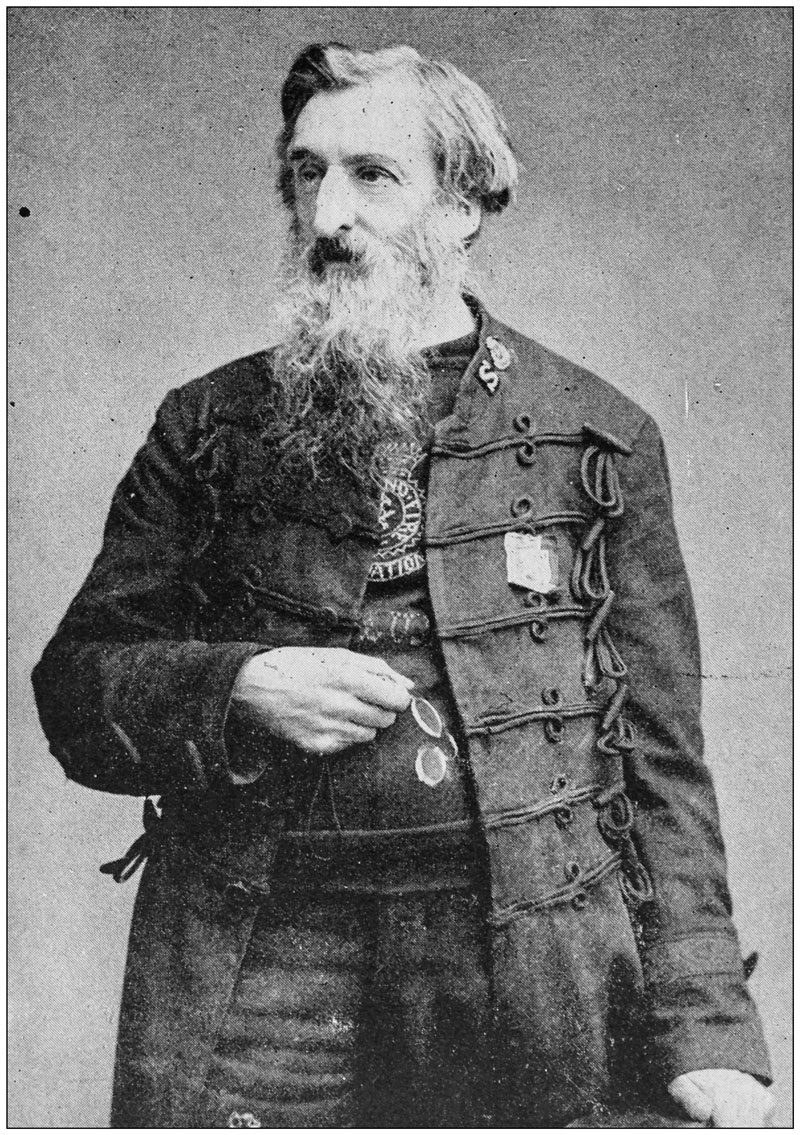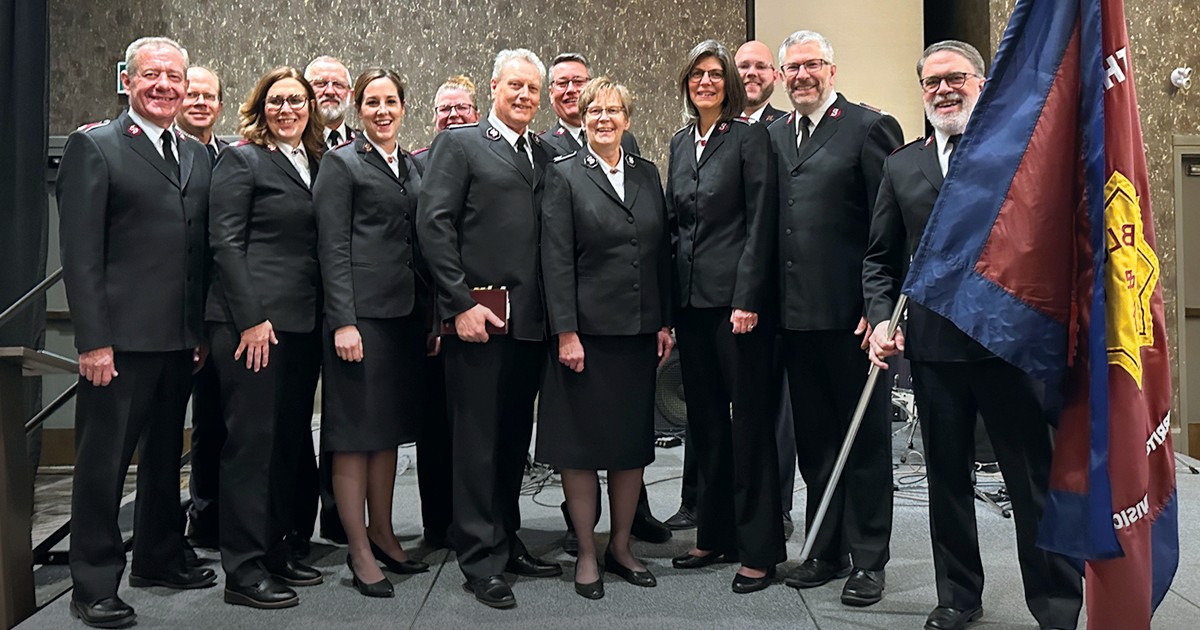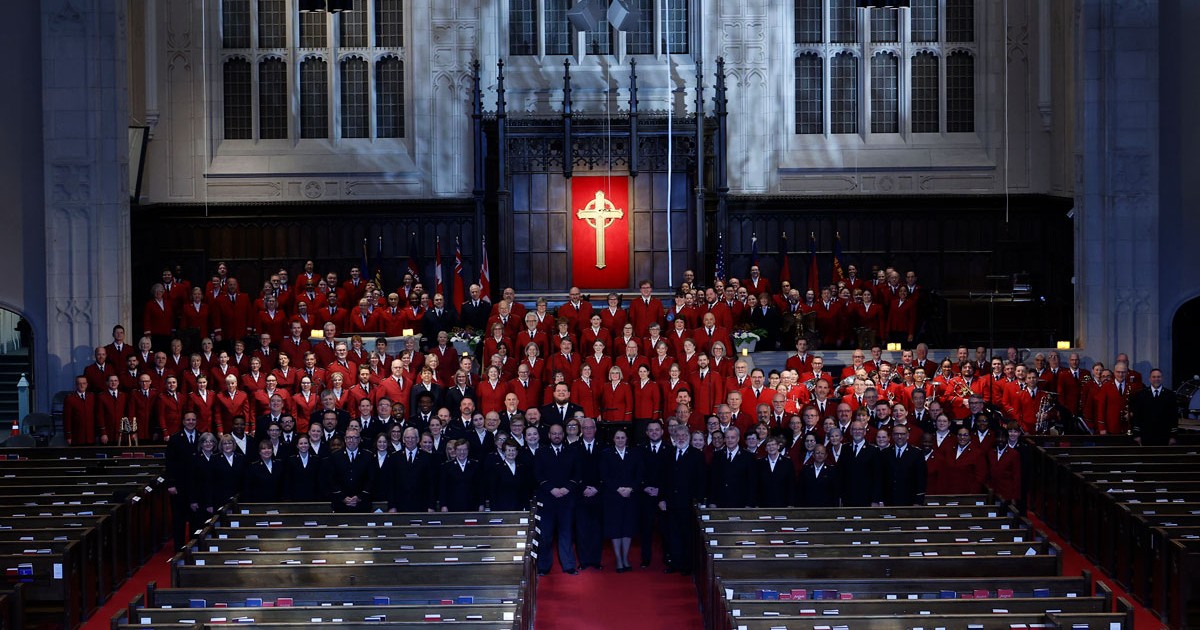Let me introduce you to a man named Theodore H. Kitching, who was born in Yorkshire, England, in 1866. At the age of 16, while on holiday in Bristol, he was converted to Christ while attending a Salvation Army meeting. Six years later, at the age of 22, he was commissioned as a Salvation Army officer.
As a young officer, Kitching was appointed to the Army’s International Headquarters (IHQ) in London as a secretary, including being the private secretary for William Booth, the co-Founder and first General of The Salvation Army. This appointment lasted for about three years. In the autumn of 1893, Booth, who had been bereaved of his partner now for three years and was still grieving, was planning a great series of evangelistic meetings to be held at the Exeter Hall in London. He said, “We will call it ‘Boundless Salvation’ because we are anxious to emphasize the dimensions of the atonement.”
At six o’clock in the morning on a cold November day, Kitching was on his way home from his office at headquarters where he had been working all night on last-minute arrangements for the congress. His path took him by the Booth home at Hadley Wood. He noticed that the lights were on and so he went to the door to see if the Founder was all right, and to report on the work he had accomplished during the night.
As Commissioner John D. Waldron writes in O Boundless Salvation, “He saw the Founder, sleepless, pacing the floor in his dressing gown, hair all awry, greatly agitated. The Founder said, ‘Kitching, I have been praying all night. I have been agonizing for these great meetings at the Exeter Hall. God has helped me put it down in words which express my feelings,’ and he handed to Kitching a sheaf of papers on which there were pages of scattered notes. Kitching deciphered his notes. The song was reproduced. A suitable melody was found, and they sang it at Exeter Hall,” on November 14, 1893.
The weekly Salvation Army magazine of the day, The War Cry, reported that during the singing of the General’s new song, “358 plunged into the vast ocean of fathomless love.” The song soon found its way around the Salvation Army world, loved and sung by Salvationists everywhere. Not only has it blessed and inspired Salvationists, but Christians in other churches sing it as well. For instance, it can be found in the hymn book of the internationally known People’s Church in Toronto.
Kitching went on to become a commissioner in The Salvation Army, was the father of the Army’s seventh General, Wilfred Kitching (1954-63), held several international leadership positions, and was promoted to glory from Paris in 1930.
On May 9, 1912, General William Booth announced and led the song when he appeared in public for the last time at his 83rd birthday celebrations in the famous Royal Albert Hall, three months before he went to be with the Lord on August 20 of that year.
Down through these many years, the message of this song has become a vivid expression of our basic motivation and of our theme. More than any other song, it has become the anthem of The Salvation Army, expressing our aspirations and hopes, and the calling of God to each one of us to a full, free and boundless salvation.
Major Jim Smith is a retired Salvation Army officer living in Toronto.
Photo: © ilbusca/iStock.com










Unfortunately much has changed.